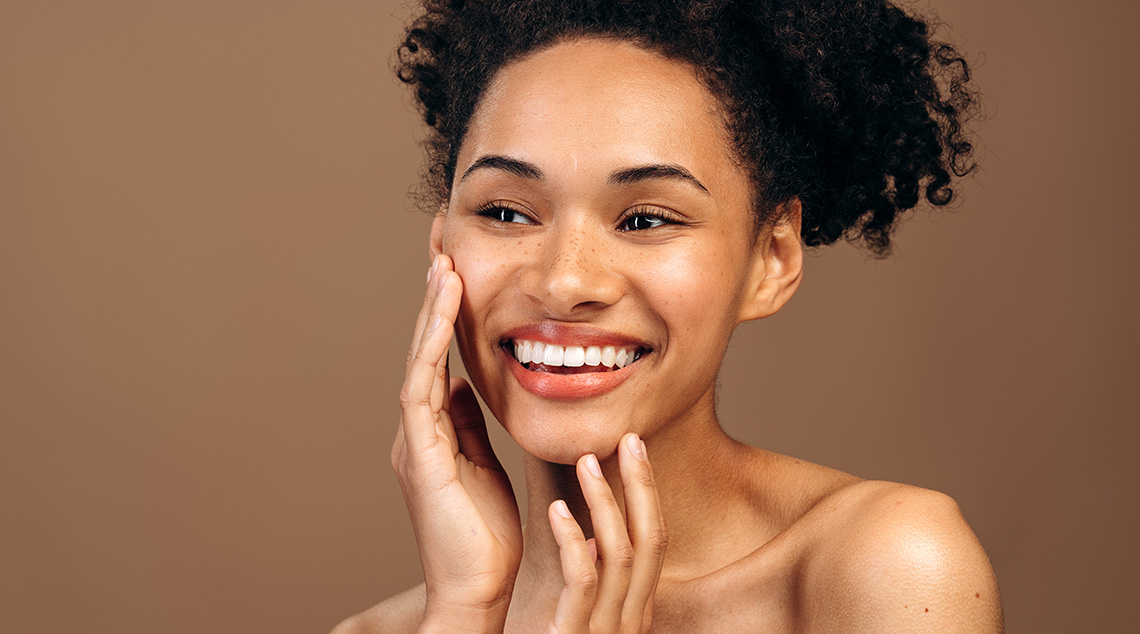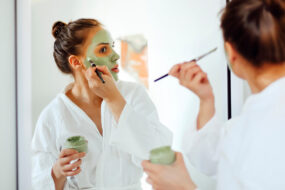How going make-up free can transform your skin
Stars like Pamela Anderson and Selena Gomez are ditching make-up to showcase their natural beauty. Here are the benefits of the ‘no make-up’ trend.
Many celebrities including Pamela Anderson and Selena Gomez have recently embraced the “no make-up” trend, posting photos that show their real beauty for millions of people to see.
The trend has played a big part in the body positivity movement, but the benefits of going make-up free extend beyond encouraging self-acceptance — according to the experts, it may also do wonders for the skin.
What does make-up do to the skin?
How wearing make-up may benefit the skin
Aesthetician and clinical educator Bianca Lorena says make-up can play a huge role in enhancing the skin’s appearance.
“Some people use make-up to cover up scars, acne and other blemishes,” Bianca says.
“And the make-up sits on the skin to create a barrier and layer of product that makes the skin appear smoother and brighter.”
How wearing make-up may harm the skin
But make-up with certain ingredients, including fragrances, preservatives or specific chemicals, can cause skin irritation or allergic reactions in some people, skin expert and Privée Clinic director Natalie Abouchar says.
“Heavy or oil-based make-up products can also potentially clog pores, leading to the development of acne, or worsening existing skin conditions,” Natalie says.
Can make-up cause your skin to age faster?
Wearing make-up for extended periods every day can potentially speed up skin ageing, Natalie says.
“Certain ingredients can dry out the skin, and repetitive motions applied during make-up application, such as tugging at the skin while applying eyeliner, can lead to fine lines and wrinkles,” she explains.
“Make-up can also stress the skin, cause dryness and irritation, and lead to inflammation — (all of) which are linked to ageing.”
A solid skincare routine and proper cleansing habits are crucial to help maintain healthy skin and minimise premature ageing.
How often should you go make-up free?
The trick is to pay attention to how your skin reacts to wearing make-up, Natalie says.
How often you should go make-up free will largely depend on your skin type, the condition of your skin and your personal preferences, she explains.
“It’s generally beneficial for everyone to allow their skin some time to breathe without make-up,” Natalie says.
If you notice signs of irritation, increased acne or sensitivity, it may be a signal that your skin needs a longer break from make-up, she notes.
What are the benefits of going make-up free?
According to Natalie, some of the benefits of going make-up free include having clearer skin.
“Your pores are less likely to become clogged, reducing the incidence of acne breakouts,” she says.
“Additionally, regular breaks from make-up can help minimise the appearance of pores as the skin can maintain its natural balance.”
Other benefits include:
Better skin hydration
Make-up can potentially dehydrate the skin, Natalie says.
“So, going without it for a time allows for more effective moisturisation and hydration.”
Natural skin repair
“Without the barrier of make-up, your skin can better repair itself from environmental damage, like sun damage,” Natalie says.
One recent study suggests wearing cosmetics daily may alter the skin’s natural microbiome.
When should you not put on make-up?
According to Bianca, you should not be wearing make-up while you are sleeping or when you are exercising.
During exercise, your sweat mixes with make-up, Natalie explains, which can result in clogged pores, potentially leading to acne.
“Additionally, sleeping with make-up can block skin renewal, causing dullness and breakouts,” Natalie says, adding that wearing make-up after cosmetic procedures can also exacerbate irritation and hinder healing.
How to love the skin you’re in
Choose skincare over make-up
“It’s absolutely essential to have good skincare with active ingredients to use regularly, or at least four nights a week,” Bianca says.
“Vitamin C and SPF 50 are my definite go-tos.”
Embrace your imperfections
“Your skin imperfections are part of what makes you unique so that should be celebrated,” Natalie says.
“Embrace the skin you’re in.”
Follow a healthy lifestyle
On top of prioritising a skincare routine that is suitable for your skin, Natalie recommends also maintaining a healthy lifestyle.
“This can be done through nutritious eating, regular exercise and effective stress management,” she says.
“Consider limiting your use of make-up to give your skin room to breathe and always protect it with daily sunscreen.”
More on natural beauty:
- It’s time to let loose — and let your natural hair shine
- Easy ways to embrace the natural brow trend
- The rise of ‘skinimalism’ and how it may benefit your skin
- Why we are loving the clean make-up look and how to achieve it
Written by Melissa Hong.




